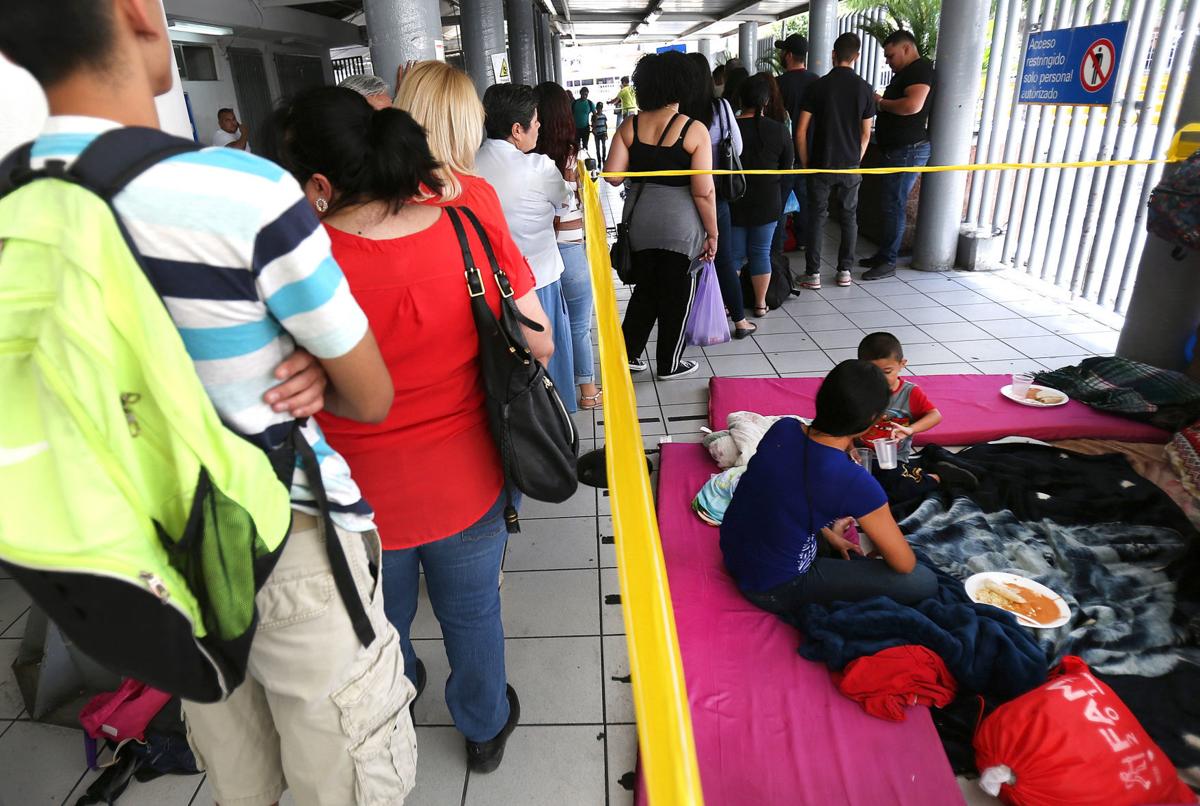The days of waiting for immigrants seeking asylum at the Nogales port of entry in May don’t appear to correspond to any significant increase in the number of people presenting themselves at the border.
The Tucson Field Office, which includes all ports of entry in Arizona, deemed inadmissible 1,792 people in May, which includes those seeking asylum, Customs and Border Protection data show. That’s an increase from previous months but similar to December figures. The share of families and unaccompanied minors among them has been between 62 and 67 percent over the last few months after peaking at 72 percent in December.
CBP has not responded to repeated requests for an interview to discuss the process and delays. Initially, it provided the Arizona Daily Star a written statement saying the agency processed people as quickly as possible “without negating the agency’s overall mission, or compromising the safety of individuals within our custody.”
The number of inadmissible individuals CBP is able to process varied based on factors such as the complexity of the case, available resources, medical needs, translation requirements, holding/detention space and port volume, the agency said.
“The May numbers do not provide adequate evidence for CBP’s claims that for capacity reasons asylum seekers must wait south of the Nogales port of entry instead of being processed upon arrival,” said Joanna Williams, of the binational organization Kino Border Initiative, which has been helping the families since last month.
The line of parents and children, many from Guatemala, started forming outside the pedestrian area of the port of entry in downtown Nogales around May 12. As CBP processed one or two families daily and more kept arriving, the lines continued to grow. Initially, families reported waiting two to three days. Most recently, more than 100 people had been waiting about a week.
As the need grew, faith-based groups and volunteers started to feed the families and to provide water, diapers and other necessities. This week, the Kino Border Initiative coordinated with churches and local shelters to house the families as the temperatures climbed so they didn’t have to sleep on the floor. One of the biggest needs remains attorneys to explain the process and what to expect, Williams said.
“We are particularly concerned that what seemed like a temporary issue has now turned into a prolonged crisis, with negative effects on the mental and physical health of young children and their parents,” she added. “We call on CBP to respect their legal obligation to process arriving asylum seekers immediately.”





